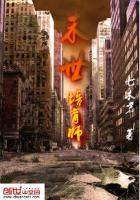When King Ferdinand received the defiance of the Moors, he made preparations for bitter hostilities. The winter season did not admit of an immediate campaign; he contented himself, therefore, with throwing strong garrisons into all his towns and fortresses in the neighborhood of Granada, and gave the command of all the frontier of Jaen to Inigo Lopez de Mendoza, count of Tendilla, who had shown such consummate vigilance and address in maintaining the dangerous post of Alhama. This renowned veteran established his head-quarters in the mountain-city of Alcala la Real, within eight leagues of the city of Granada and commanding the most important passes of that rugged frontier.
In the mean time, Granada resounded with the stir of war. The chivalry of the nation had again control of its councils, and the populace, having once more resumed their weapons, were anxious to wipe out the disgrace of their late passive submission by signal and daring exploits.
Muza Abul Gazan was the soul of action. He commanded the cavalry, which he had disciplined with uncommon skill; he was surrounded by the noblest youths of Granada, who had caught his own generous and martial fire and panted for the field, while the common soldiers, devoted to his person, were ready to follow him in the most desperate enterprises. He did not allow their courage to cool for want of action. The gates of Granada once more poured forth legions of light scouring cavalry, which skirred the country up to the very gates of the Christian fortresses, sweeping off flocks and herds.
The name of Muza became formidable throughout the frontier; he had many encounters with the enemy in the rough passes of the mountains, in which the superior lightness and dexterity of his cavalry gave him the advantage. The sight of his glistening legion returning across the Vega with long cavalgadas of booty was hailed by the Moors as a revival of their ancient triumphs; but when they beheld Christian banners borne into their gates as trophies, the exultation of the light-minded populace was beyond all bounds.
The winter passed away, the spring advanced, yet Ferdinand delayed to take the field. He knew the city of Granada to be too strong and populous to be taken by assault, and too full of provisions to be speedily reduced by siege. "We must have patience and perseverance," said the politic monarch; "by ravaging the country this year we shall produce a scarcity the next, and then the city may be invested with effect."
An interval of peace, aided by the quick vegetation of a prolific soil and happy climate, had restored the Vega to all its luxuriance and beauty; the green pastures on the borders of the Xenil were covered with flocks and herds; the blooming orchards gave promise of abundant fruit, and the open plain was waving with ripening corn.
The time was at hand to put in the sickle and reap the golden harvest, when suddenly a torrent of war came sweeping down from the mountains, and Ferdinand, with an army of five thousand horse and twenty thousand foot, appeared before the walls of Granada. He had left the queen and princess at the fortress of Moclin, and came attended by the duke of Medina Sidonia, the marques of Cadiz, the marques de Villena, the counts of Urena and Cabra, Don Alonso de Aguilar, and other renowned cavaliers. On this occasion he for the first time led his son, Prince Juan, into the field, and bestowed upon him the dignity of knighthood. As if to stimulate him to grand achievements, the ceremony took place on the banks of the grand canal almost beneath the embattled walls of that warlike city, the object of such daring enterprises, and in the midst of that famous Vega, the field of so many chivalrous exploits. Above them shone resplendent the red towers of the Alhambra, rising from amidst delicious groves, with the standard of Mahomet waving defiance to the Christian arms.
The duke of Medina Sidonia and Roderigo Ponce de Leon, marques of Cadiz, were sponsors, and all the chivalry of the camp was assembled on the occasion. The prince, after he was knighted, bestowed the same honor on several youthful cavaliers of high rank, just entering, like himself, on the career of arms.















